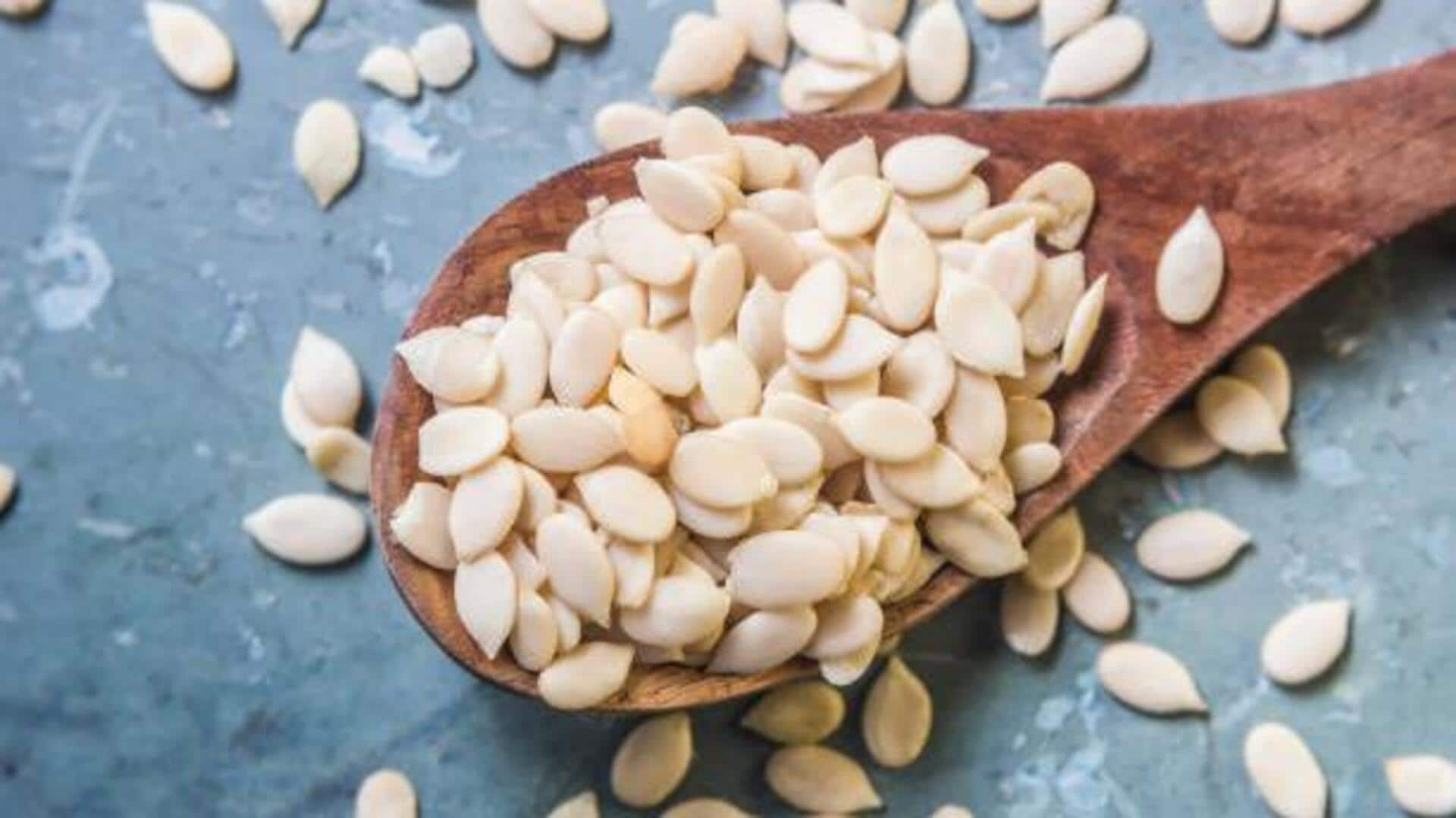
You must add these seeds to your daily diet
What's the story
African seeds are taking vegetarian cuisine by storm, adding unique flavors and nutritional benefits. Usually ignored in world cooking, these seeds are now coming to the fore for their versatility and health benefits. From lending the taste to daily meals to giving necessary nutrients, African seeds are becoming an essential part of vegetarian cooking. Here's how they can make your meals extraordinary.
Baobab
Baobab seeds: A nutritional powerhouse
Rich in vitamins and minerals, baobab seeds make a great addition to vegetarian dishes. They are extremely high in vitamin C, calcium, and potassium. Adding baobab seeds to salads or smoothies can increase the nutritional value by a great deal. Plus, their slightly tangy taste lends a refreshing twist to different recipes without overshadowing other ingredients.
Egusi
Egusi seeds: Adding texture and flavor
Egusi seeds are famous for adding texture and depth to vegetarian meals. Popular in West African cuisine, these melon-like seeds have a nutty flavor that goes well with soups and stews. From thickening sauces to enhancing the overall taste profile of the dish, ground into a paste or powder, egusi can do it all.
Fonio
Fonio: The ancient grain alternative
Fonio, an ancient grain, is becoming increasingly popular as a gluten-free substitute in vegetarian diets. It cooks quickly and has a light texture, akin to couscous or quinoa. Rich in amino acids and iron, Fonio makes an ideal choice for anyone looking for plant-based protein sources. Its mild flavor makes it blend seamlessly with various spices and vegetables.
Tiger nuts
Tiger nuts: A sweet snack option
Tiger nuts provide a sweet source for snacking or dessert in vegetarian diets. Surprisingly, tiger nuts are tubers high in fiber that promote digestion. You can consume them raw or roasted as snacks, or use them as flour alternatives when baking cookies or cakes owing to the subtle sweetness.